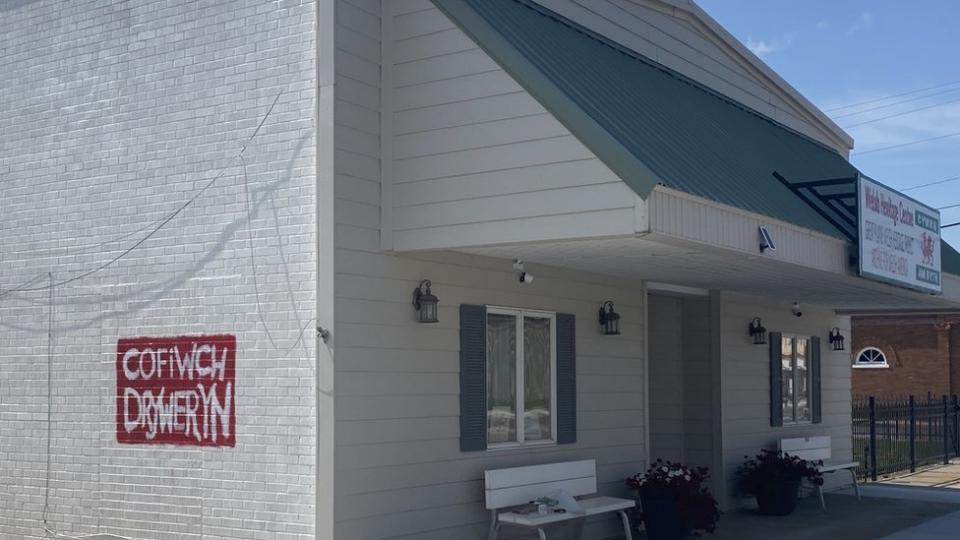
A mural commemorating the drowning of a Welsh village has appeared in a rural USA city with Welsh roots.
Cofiwch Dryweryn – remember Tryweryn – was painted on a Welsh museum in Wymore, Nebraska.
The protest image was first painted near Llanrhystud in Ceredigion in 1965 after Capel Celyn was flooded to create a reservoir to supply Liverpool.
Copycat images started appearing around the world after the original was first vandalised in 2019.
Welsh-American Robert Humphries drove eight-hours from his home in Wisconsin to paint Cofiwch Dryweryn in Wymore in July.
The town was first populated by settlers from Wales in the 1880s and is now home to the Great Plains Welsh Heritage Centre.
Mr Humphries, 49, emigrated to to the US from Newport as a teenager.
He is now one of the museum’s board members, does historical research and translates Welsh-language archives.
“I’m really proud we went ahead and did the mural,” he said, explaining how he was “goaded” into doing it after a chat with Aberystwyth-born David Parry.
“It is a small contribution to helping raise awareness of the Welsh language and issues related to Wales,” he said.
“I hope it can spur conversations and things going on in America and how we can thrive as a multi-cultural community.”
Many people in Wymore remain proud of their Welsh roots, he said, explaining how the mural has become “very meaningful” to them.
Mr Humphries saw the original Cofiwch Dryweryn site during a visit to the Eisteddfod in Tregaron in 2022 and called it a “poignant” example of how Welsh culture has endured.
“We had a blank space on the wall outside our museum,” he added.
“I was goaded into filling it with Cofiwch Dryweryn.”
He said he also wanted the mural in place before the end of August when Wymore hosts the North American Festival of Wales, with guest that include the former national poet of Wales Ivor ap Glyn and the Welsh composer Robat Arwyn.

